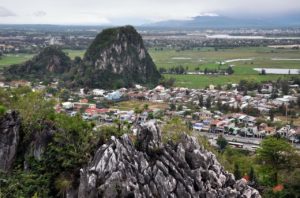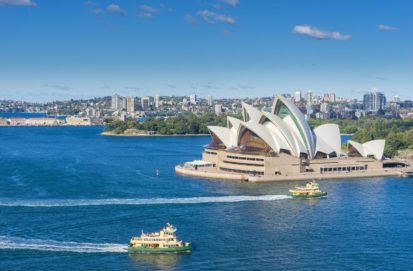Australia: Traffic Light Bulletin update
The Dept. of Employment, Skills, Small and Family Business has released its “Traffic Light Bulletin” (TLB), outlining proposed changes to skilled occupation lists. These proposed changes represent an increase/decrease in demand for certain occupations; trade occupations will be affected most. A number of occupations have been flagged for movement between lists.
Impact 
Occupations identified for removal from all occupation lists (Red)
Occupations considered “Red” include: Hairdresser’s, Massage Therapists and Community Worker’s.
Occupations flagged for change (Amber)
There are three occupation lists considered “Amber”: Short Term Skilled Occupations List (STSOL), Medium and Long Term Strategic Skills List (MLTSSL) and Regional Occupation List (ROL).
All occupations moving from MLTSSL to STSOL are trades related. These include: Glaziers, Automotive Electricians, Painting Trade Workers and Cabinetmakers.
Occupations moving in the opposite direction, from STSOL to MLTSSL, and provide pathways to permanent residence include: ICT Project Manager’s, Information and Organization Professional’s, Sales and Marketing Manager’s. There are recommendations for salary caveats indicating that significant skills will be required for eligibility.
Occupations are also recommended to move from ROL to MLTSSL and STSOL, opening up opportunities for non-regional employers to sponsor visas. Finally, the Geologist occupation will likely move from STSOL to ROL to limit applications in Australia.
Occupations identified for addition (Green)
Some personal support occupations have been identified to move to STSOL with a mandatory skills assessment.
New and emerging occupations
A number of occupations that do not currently fit into ANSZCO (Australian and New Zealand Standard Classification of Occupations) definitions have been identified. It is recommended that these are defined for immigration purposes.
Salary caveat recommendations
Certain occupations not affected have been identified as requiring a minimum salary caveat.
Looking ahead
The traffic light bulletin is designed to flag occupation list changes and continue to allow feedback from stakeholders. The Dept. of Employment, Skills, Small and Family Business is now seeking public submissions before Feb. 12, 2020.
*Note these are proposed changes. A formalized decision will take place in March 2020.
This summary was prepared using information obtained from the Australian Government.
Disclaimer: The above information is provided for general information purposes only and should not be construed as legal advice. If you have any further inquiries regarding the applicability of this information, please contact Debra Beynon, Regional Immigration Manager, APAC.
United States: Electronic registration implemented for H-1B cap season
The U.S. Citizenship and Immigration Services (USCIS) will implement a new electronic registration process relating to the upcoming H-1B lottery.
Impact
Before filing H-1B cap-subjected applications for the fiscal year 2021 cap, employers will be required to register electronically between Mar. 1 – 20, 2020. They will be required to provide basic company and worker information as well as pay the registration fee (US$ 10).
Looking ahead
Employers are no longer required to file a complete H-1B application with the electronic registration. It is possible that the application will be rejected if it is not selected in the cap lottery. Employers who have registered and been selected in the lottery will have 90 days to file H-1B applications.
This summary was prepared using information obtained from the USCIS.
Disclaimer: The above information is provided for general information purposes only and should not be construed as legal advice. If you have any further inquiries regarding the applicability of this information, please contact Roberta Carnaccini, Global Operations Manager, Immigration.
Vietnam: Changes to immigration law and new labor code
The authorities in Vietnam have provided advance notice of changes to laws on entry/exit/transit/residence of foreigners and a new labor code. The new law will come into effect on July 1, 2020 and the new labor code on Jan. 1, 2021.
The new law also provides a legal framework for the e-visa regulation implemented in 2017.
Impact 
Immigration law changes
The new law will allow an in-country change of a visa category in certain circumstances. There will also be some changes to visa categories as described below:
The LS visa will be issued to foreign investors and foreign lawyers practicing in Vietnam.
The (DT) investor visa and (DT) temporary residence card will be divided into four categories:
-
- The visa or temporary residence card validity will vary between one and ten years.
- Dependents of foreign investors will be granted a visa or temporary residence card for a maximum of three years (renewable).
The DN visa will be divided into two categories:
-
- DN 1 – issued to foreign nationals entering Vietnam to collaborate with enterprises or organizations regulated by Vietnamese Law
- DN 2 – issued to foreign nationals entering Vietnam to offer services, establish a commercial presence or conduct activities under international agreements to which Vietnam is a party.
The working visa (LD) will also be divided into two categories:
-
- For Work Permit holders
- For Work Permit exemption certificate holders
Foreign nationals entering Vietnam under the visa exemption scheme are required to have a passport valid for at least six months. The cooling off period from the earlier exit is no longer required.
New labor code
Foreign nationals exempt from a work permit include:
-
- Owners or capital contributing members of a limited liability company with capital contribution amounts that meet designated government requirements.
- The Chairman of a Board of Directors or a member of a Board of Directors of a joint stock company with capital contribution amounts that meet designated government requirements.
- Spouses of Vietnamese nationals resident in Vietnam.
Other notable changes to the labor code
-
- The new investment threshold for foreign investors to qualify for work permit exemption will be determined and notified in upcoming Government decrees/circulars.
- The term of an employment contract for foreign nationals working in Vietnam must not exceed the validity of the work permit. Employers may enter into multiple definite term employment contracts with employees if a work permit is authorized. This differs from employment contract rules for Vietnamese workers.
- The term of a work permit may not exceed two years and can only be extended once for a further two years. It is not currently clear if after the four-year period a foreign employee will be able to seek a new work permit (the qualifying criteria may be different from the original work permit).
- A new decree of foreigners management working in Vietnam is expected during the course of 2020. This should assist with clarification of the new labor code before it becomes effective on Jan. 1, 2021.
This summary was prepared using information obtained from Peregrine Immigration Management.
Disclaimer: The above information is provided for general information purposes only and should not be construed as legal advice. If you have any further inquiries regarding the applicability of this information, please contact Debra Beynon, Regional Immigration Manager, APAC.
We track policy changes in over 120 countries. Find out how we can help you in this short video.




